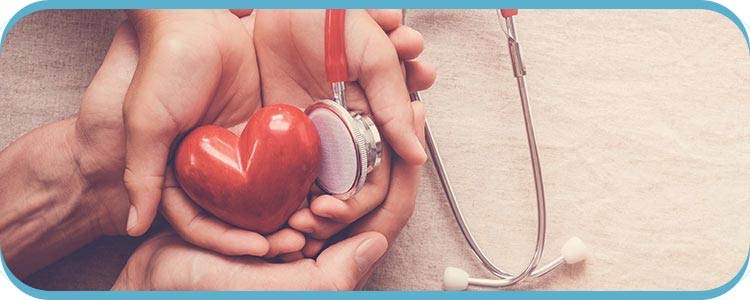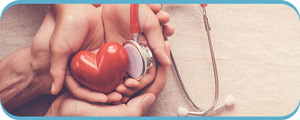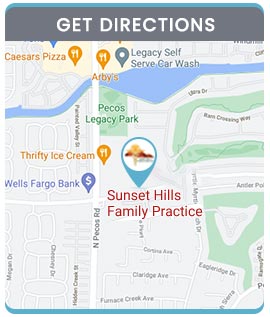Cardiovascular Health Questions and Answers
Maintaining cardiovascular health supports a variety of bodily functions and is essential for overall well-being. Regular exercise, eating a balanced diet, controlling stress, and keeping a healthy weight, are some factors that affect cardiovascular health. Learn how to improve your cardiovascular health, talk to our team of medical professionals at Sunset Hills Family Practice in Henderson, NV today about your heart health. Call us now for more information or schedule your appointment online.


Table of Content:
What improves cardiovascular health?
What is the best exercise for cardiovascular health?
What are the 7 healthy lifestyle guidelines for cardiovascular health?
Why is cardiovascular health important?
What is cardiovascular health?
What are the symptoms of heart disease?
How does my provider diagnose heart disease?
What are my heart disease treatment options?
Cardiovascular health refers to your heart health. You can improve your cardiovascular health by changing up your diet, which can include changing the foods you eat, adding more foods that are good for your heart health and limiting foods that are not good for it, as well as changing your portion sizes. Eating more fruits and vegetables is an easy way to add dietary fiber into your diet and can help you reduce the amount of higher calorie foods you eat such as cheese and snack foods. Choosing whole grains that are a good source of fiber for your bread, flour, cereal, pasta and oatmeal will help regulate blood pressure, as well as your heart health. Limit unhealthy fat intake will reduce your cholesterol and lower your risk of plaque buildup in your arteries that can lead to a heart attack or stroke. Reducing the amount of sodium, or salt, in your diet will keep your blood pressure in check and reduce your risk of heart disease. You can also improve your cardiovascular health through exercise. By moving enough to increase your heart rate and cause you to breathe faster and deeper, you are increasing the amount of oxygen in the blood, which will help you to use oxygen in a more efficient manner. Always consult your doctor before taking drastic steps to improve your health to ensure that you are doing so in a safe and healthy manner.
Any type of aerobic exercise or activity will be beneficial to your cardiovascular health as long as you get your heart rate elevated, and you are increasing the amount of oxygen in your blood by breathing faster and deeper. Aerobic exercise should cause you to move your arms, legs and hips, in repeated movements to get the blood flowing through all of your limbs. If you are not used to aerobic activities, consult with your doctor prior to starting any type of program to ensure that you are doing so safely and within your personal abilities. You can start off slow, something as simple as going for a walk once or twice a day can have a huge impact on your cardiovascular health if it is not something you currently do. There are many options available for activities and exercises that can be performed to improve your cardiovascular health, although many people may think only of running or bike riding. Try different activities to find the one that is best for you and that you enjoy doing. If you have to force yourself to do an activity that you don’t enjoy, it is going to be a struggle for you to do it on a regular basis to make as big of an impact as you could.
The 7 healthy lifestyle guidelines for cardiovascular health are as follows:
1. Learn your health history. You should know your family’s health history to be aware of any risks that exist for your personal health. Talk to your family, including your parents, siblings, grandparents, aunts and uncles to know what conditions exist in your family and then follow up with your doctor to understand how they can potentially impact your health.
2. Eat a healthy diet. This can often be easier said than done with so many convenient options available in the market. As much as possible, choose to make your own meals at home, using fruits, vegetables, whole grains and lean meats. Try to limit your consumption of salt, saturated fats and added sugar.
3. Move more, sit less. Try to limit the amount of time spent sitting by getting up for movement breaks as much as possible. You should also participate in at least 150 minutes of aerobic activity each week, at a moderate intensity. At least 2 days a week, work in some strength building activities.
4. Quit smoking. If you are a smoker, make a plan to quit. There are many supports out there, reach out to your doctor if you need suggestions on where to turn.
5. Take medication as directed. Always follow the directions outlined by your doctor for any medications you take to ensure you are caring for your body as best as you can. If you are concerned about your medications, or have any questions, reach out to your doctor prior to discontinuing use of any of your current medications.
6. Rethink your drink. Sugary drinks should be replaced with water, you can even add slices of lemon or lime to give it a natural flavor with the additional benefits of the vitamins from the fruits.
7. Monitor your blood pressure. You can monitor this at home or through devices available in some pharmacies.
Our heart works hard for us 24 hours a day, 7 days a week, keeping blood pumping through our bodies to keep us alive. It is one of the most essential organs in our bodies and if it stops, almost all other systems will almost instantly fail. Keeping ourselves healthy through our cardiovascular health ensures that the heart is always performing its best to keep our bodies running. Heart disease and conditions affecting the heart can cause many problems with other parts of our bodies. Heart disease is also the most common cause of death around the world. We serve patients from Henderson NV, Midway NV, Gibson Springs NV, Paradise Hills NV, and Winchester NV.
Cardiovascular health is how healthy your heart is. Providers at Sunset Family Practice can evaluate your heart health, screen you for disease risk factors, and offer treatments as needed to reduce your risk of a heart attack or stroke.
High blood pressure and high cholesterol, two main risk factors for heart disease, don’t always cause symptoms. If you have heart disease, however, you may experience:
• Chest pain, tightness, or pressure
• Shortness of breath
• Weakness, numbness, pain, or coldness in limbs
• Jaw, neck, back, abdominal, or throat pain
• Fluttering in your chest
• A racing or slow heartbeat
• Dizziness or lightheadedness
• Fainting
• Blue- or gray-colored skin
• Leg, foot, ankle, hand, or abdominal swelling
• Fatigue, especially during exercise
Because fainting, shortness of breath, and chest pain can indicate a heart attack, seek medical attention at the first sign of these symptoms.
Your primary care specialist reviews your medical history and any symptoms to diagnose heart problems and their risk factors. They check your pulse, blood pressure, and other vital signs and complete a physical examination.
Your provider might recommend you undergo blood tests and on-site echocardiograms or electrocardiograms (EKGs) to assess heart function. Both procedures are painless and straightforward. During an EKG, electrodes record your heart’s electrical signals during rest or while exercising.
Echocardiograms use non-invasive sound waves to create detailed images of your heart’s structure and function.
Depending on the type of heart disease or risk factors, Sunset Hills Family Practice offers the following cardiovascular health treatments:
Lifestyle changes
Making lifestyle changes can reduce high blood pressure, high cholesterol, and other heart-disease risk factors. Sunset Hills Family Practice offers medical weight loss and healthy lifestyle counseling – including diet and exercising guidance.
Medications
Taking certain medications can reduce heart disease risk factors. Your family medicine specialist personalizes each medication regimen to give you the best outcome.
Surgical procedures
If you have a specific heart condition, blood vessel narrowing, or a blockage, your provider may suggest you undergo a surgical procedure. They can refer you to a highly trained specialist.
Don’t let high blood pressure, high cholesterol, or heart disease go undetected and untreated when simple cardiovascular health solutions are within reach. Call Sunset Hills Family Practice or book an appointment online today.




